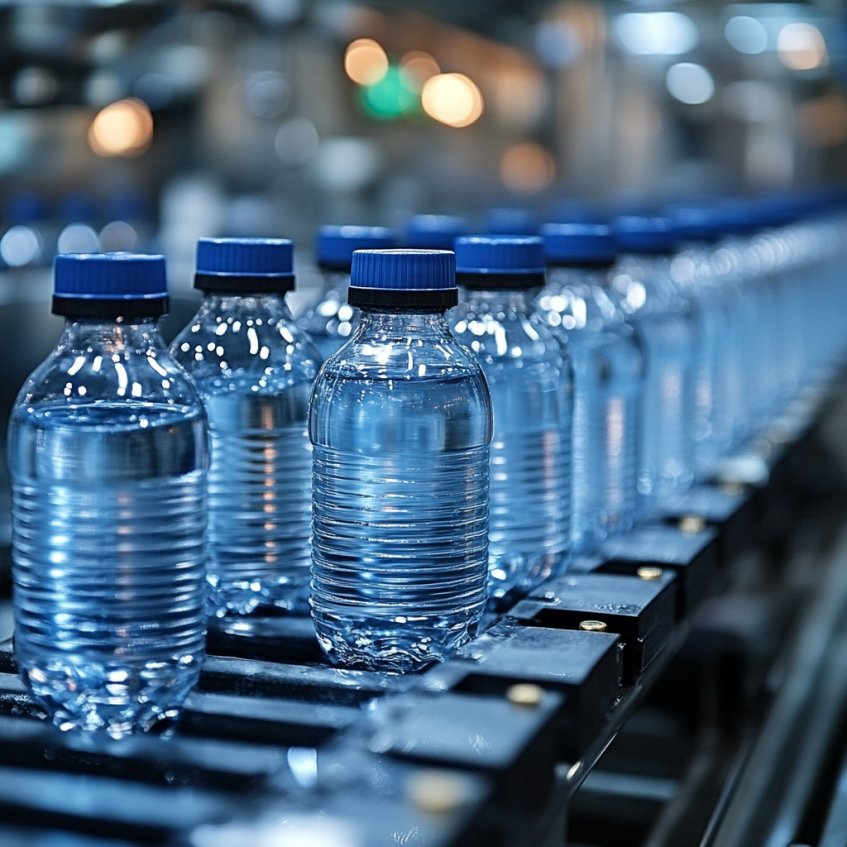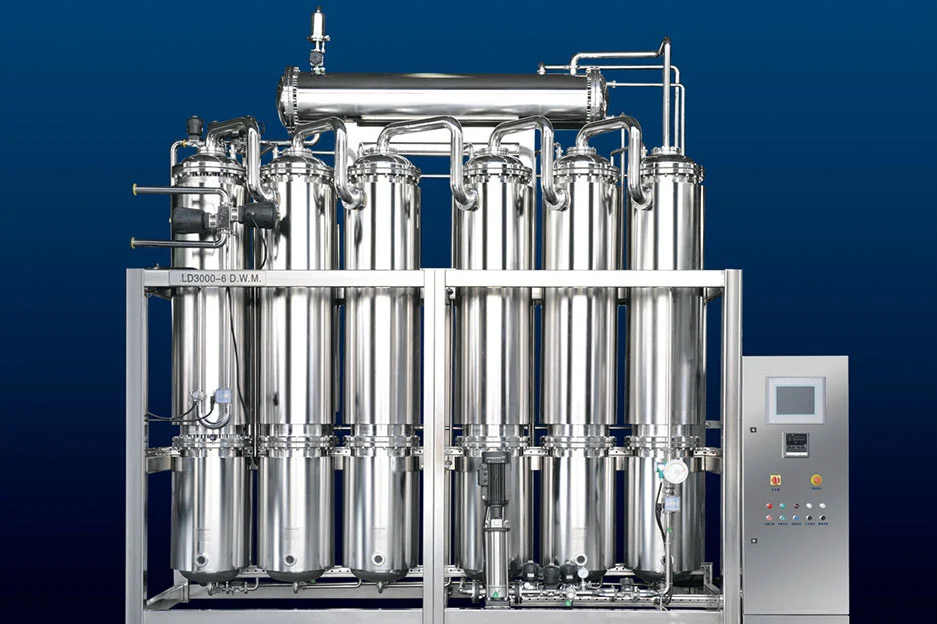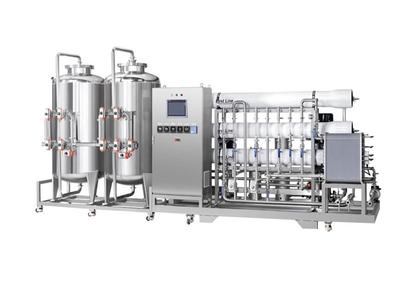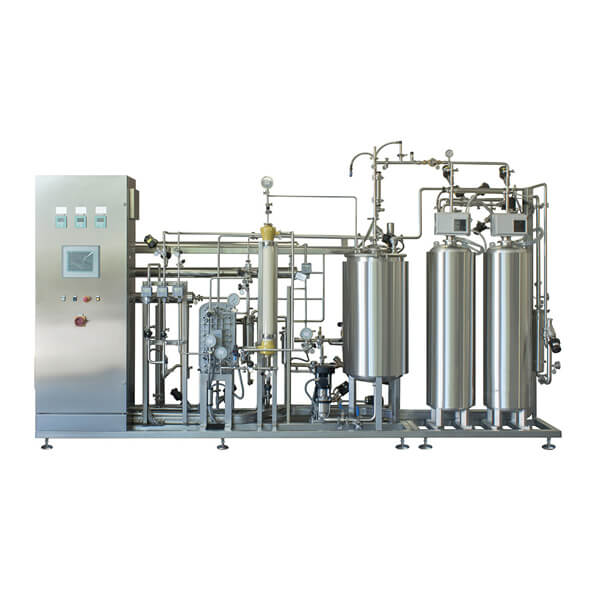In the biopharmaceutical industry, water is far more than just a utility—it’s a raw material essential to product safety and efficacy. Water for Injection (WFI) is the highest quality of water used in pharmaceutical and biotech manufacturing. A reliable and compliant WFI water system is crucial for operations involving parenteral drugs, vaccines, biologics, and other sterile preparations. This guide explores how WFI systems work, the regulatory framework they must meet, their applications, and how to design them effectively.
A WFI (Water for Injection) water system is a critical infrastructure in pharmaceutical and biotech facilities, designed to generate, store, and distribute ultra-pure water. According to global pharmacopeias such as USP and Ph. Eur., WFI must be free from pyrogens, bacteria, and dissolved solids.
At Biocell, we offer a full portfolio of WFI systems including:
Multi-Effect Distillers (MED)
Single-Effect Distillers
Pure Steam Generators
Cold WFI Generation Systems using membrane technologies
Our systems ensure consistent production of pharmacopeia-compliant WFI, meeting the stringent standards required for sterile manufacturing environments.
WFI can be produced using two primary methods: distillation and cold membrane-based purification (as accepted in the EU).
Biocell's multi-effect distillers operate on the principle of stepwise evaporation and condensation:
Pre-treated water enters the first column and is evaporated using clean steam.
The vapor then moves to subsequent columns where it's reused to evaporate more water (energy recovery).
The final condensate is collected as WFI.
This method effectively removes:
Endotoxins
Bacteria
Volatile and non-volatile contaminants
Using reverse osmosis (RO), electrodeionization (EDI), and ultrafiltration (UF), Biocell’s cold WFI systems:
Offer energy-efficient alternatives to distillation
Produce water meeting Ph. Eur. and USP requirements
Are suitable for facilities with lower steam availability
The system is often paired with a sanitized distribution loop, complete with 316L stainless steel piping and continuous monitoring.

Compliance with international regulations is non-negotiable in the biopharma sector. The following standards govern the production and distribution of WFI:
| Standard | Requirements |
|---|---|
| USP (United States Pharmacopeia) | WFI must be produced by distillation or an equivalent method and contain no more than 10 CFU/100 mL of microbial contamination. |
| Ph. Eur. (European Pharmacopoeia) | Since 2017, allows WFI production via cold membrane processes with regular biofilm monitoring. |
| cGMP (Current Good Manufacturing Practice) | Systems must be validated and routinely monitored for microbial growth, TOC (Total Organic Carbon), and conductivity. |
| FDA/EMA Guidelines | Emphasize comprehensive risk-based qualification, real-time monitoring, and periodic revalidation. |
Biocell ensures all WFI systems are designed to meet or exceed these international standards, providing complete validation support, from DQ/IQ/OQ to PQ.
WFI plays a pivotal role in almost every stage of sterile product manufacturing. Its applications include:
WFI is used as a solvent in the manufacture of:
Vaccines
Insulin
Monoclonal antibodies
Cytotoxic drugs
Used for the final rinse of:
Vials, ampoules, and syringes
Manufacturing tanks
Fill-finish equipment
WFI is a critical ingredient in:
Fermentation media
Cell culture preparation
Buffer solution preparation
Used in HPLC, endotoxin testing, and other analytical procedures.
Biocell’s high-performance WFI systems are widely used in cleanrooms and GMP-certified facilities globally, where any deviation in water quality can compromise product safety.
The design of a WFI system should be tailored to the specific operational and regulatory needs of a facility. Critical considerations include:
Estimate the volume of WFI required per day and peak usage to size the system appropriately. Oversizing leads to unnecessary operational costs, while undersizing can result in downtime.
Use distillation if pyrogen risk is high or regulatory demands are strict.
Use membrane systems in energy-conscious facilities with robust biofilm control protocols.
Ensure all components in contact with WFI are constructed of 316L stainless steel, electropolished, and passivated. Biocell systems are built to ASME BPE and EHEDG standards.
Design with:
Sloped piping for complete drainability
Continuous recirculation at 80°C for thermal sanitization or <25°C for cold loops with ozone
Automated controls (PLC/SCADA) with online TOC, conductivity, temperature, and microbial counters are essential for 24/7 operation.
Choose a provider like Biocell that delivers comprehensive documentation (URS, FS, DQ/IQ/OQ) and onsite FAT/SAT support.
Biocell understands that WFI water systems are not one-size-fits-all. Whether you are launching a greenfield project or upgrading legacy systems, our engineering team collaborates with clients to deliver turnkey, compliant, and energy-efficient WFI systems.
A robust WFI water system is the backbone of sterile pharmaceutical production. From injectables to biologics, WFI ensures that safety and purity are never compromised. By choosing a partner like Biocell, you’re investing in regulatory compliance, operational efficiency, and peace of mind. For a personalized consultation or to explore our products, visit Biocell Pharma.


